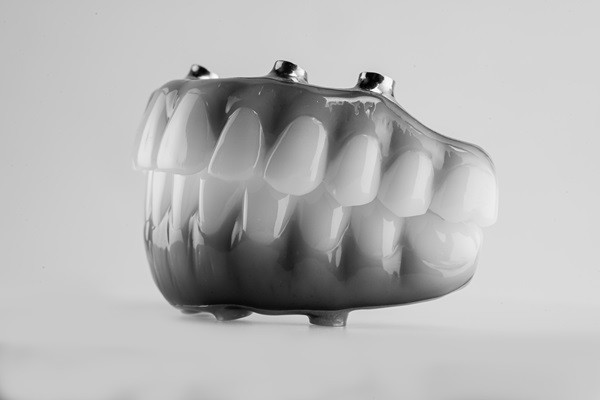Dental Implants vs. Dental Bridges: Which should you choose?

Tooth loss is common, and the American College of Prosthodontics estimates that 178 million Americans are missing at least one tooth, and about 40 million Americans are missing all of their teeth. As we age, this oral health issue only gets worse. When you need to replace one or more teeth, you have quite a few options, including dental implants and dental bridges:
- Dental implants mimic tooth roots and are fixed in the jaw. Dependent on how many teeth are missing, they can support a crown, bridge, or denture.
- Dental bridges are prosthetic teeth secured by teeth around the missing tooth (or multiple teeth, up to four teeth in a row).
If you’re unsure which option to go for, Dr. Payam Asadi of Advanced Family Dentistry explains the primary differences between each tooth replacement option.
Process Timeline
Post-consultation, dental implants require more time and can take three to six months to complete. Also, patients may require bone grafting and multiple surgeries during the dental implant process. On the other hand, a skilled dentist can install dental bridges in two visits spread over a few weeks.
Cost and Insurance Coverage
The costs of dental bridges and implants can vary from location to location. Typically, dental bridges have a lower upfront cost than dental implants. According to the American Dental Association (ADA):
- Dental bridges range from $500 to $1,200 (but need to be replaced more often than dental implants).
- Dental implants can cost between $1,600 to $2,200 per tooth (including the price of restoration, sedation, and more).
It’s noteworthy to mention that insurance plans usually cover costs associated with dental bridges, but dental implants rarely are covered by insurance. Regardless, some dentists offer special financing, in-house dental plans, and more to help patients afford the dental treatment of their choice. Book a consultation in your area for a more definitive estimate of treatment prices.
Associated Risks
Even though dental bridges look and almost function like natural teeth, they do come with a few drawbacks:
- Dental bridges don’t act like the natural tooth root or stimulate the jaw, so atrophy will occur over time.
- When a dentist installs a bridge, the remaining surrounding teeth are at risk for damage and tooth decay.
Despite a high success rate (98%), dental implants require surgery, so complications (such as blood loss, infection, or nerve damage) may occur.
Lifespan
Even with proper care, restorations may require replacement every so often. However, the ADA supports that dental bridges need to be replaced more frequently and can add up over time:
- Dental bridges should be replaced every 5 to 7 years (but can last for about a decade if taken care of properly). Bridges can appear more worn down and fake over time if not replaced.
- Dental implants can last 15 years or beyond. Although, the restoration (crown, bridge, or denture) may need to be replaced from time to time.
Schedule a Consultation for Dental Implants or Bridges in Tucson
In summary, dental implants and dental bridges can deliver sturdy and natural-looking results, but they come with their advantages and disadvantages. Whether you believe dental implants or dental bridges are most suitable for your lifestyle, Dr. Asadi helps patients suffering from tooth loss in Tucson, AZ, decide which tooth replacement option is the best for their unique needs. Schedule your initial consultation by calling (520) 353-3002 or getting in touch with us online.
Recent Posts
Learning about the many benefits of dental implants is something everyone who is missing teeth needs to do before making a final tooth-replacement choice. The fact that there have been many improvements in the dental niche over recent years means that dental patients have more choices than ever before. Ready to learn more about this…
Before the invention of dental implants, the only options available to replace a lost tooth were dentures or bridges. Today, dental implants offer a solution that looks and feels like a natural tooth. They are attractive and comfortable, and they provide many advantages.If you are considering replacing a lost tooth with an implant, there are…
Dental implants are highly recommended when it comes to replacing missing teeth. These oral prosthetics are surgically inserted into your jawbone, replacing the root that came out when you lost a tooth.Replacing lost teeth with dental implants requires minor oral surgery, and the implant is given up to six months to fuse with surrounding bone…
When it comes to tooth replacement options, dental implants are the gold standard. Dental implants offer benefits that other prosthetic dental appliances simply cannot provide. Below are the top seven benefits of this proven and popular tooth replacement choice:As people lose teeth, they begin to lose bone mass in their jaw. Over time, absent teeth…


